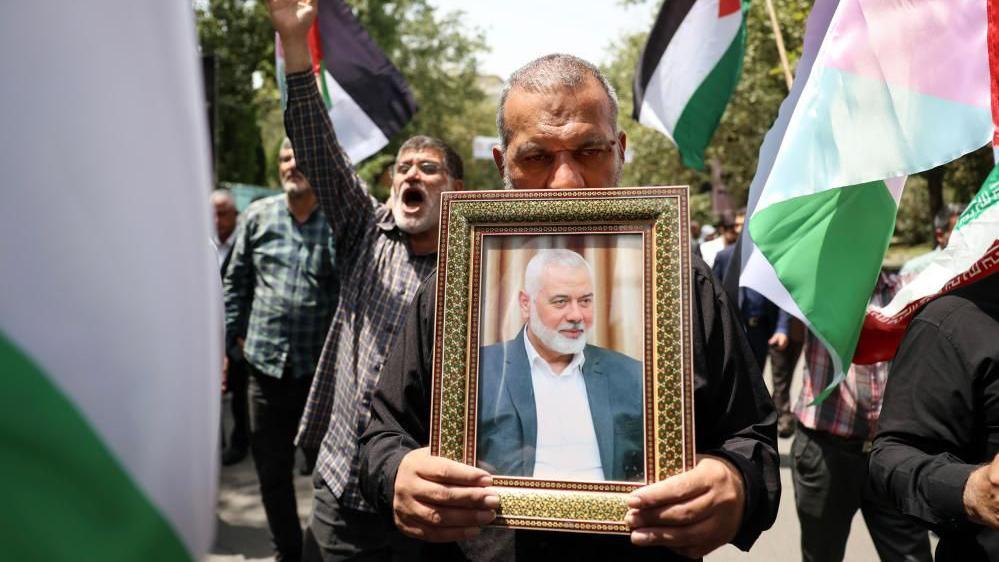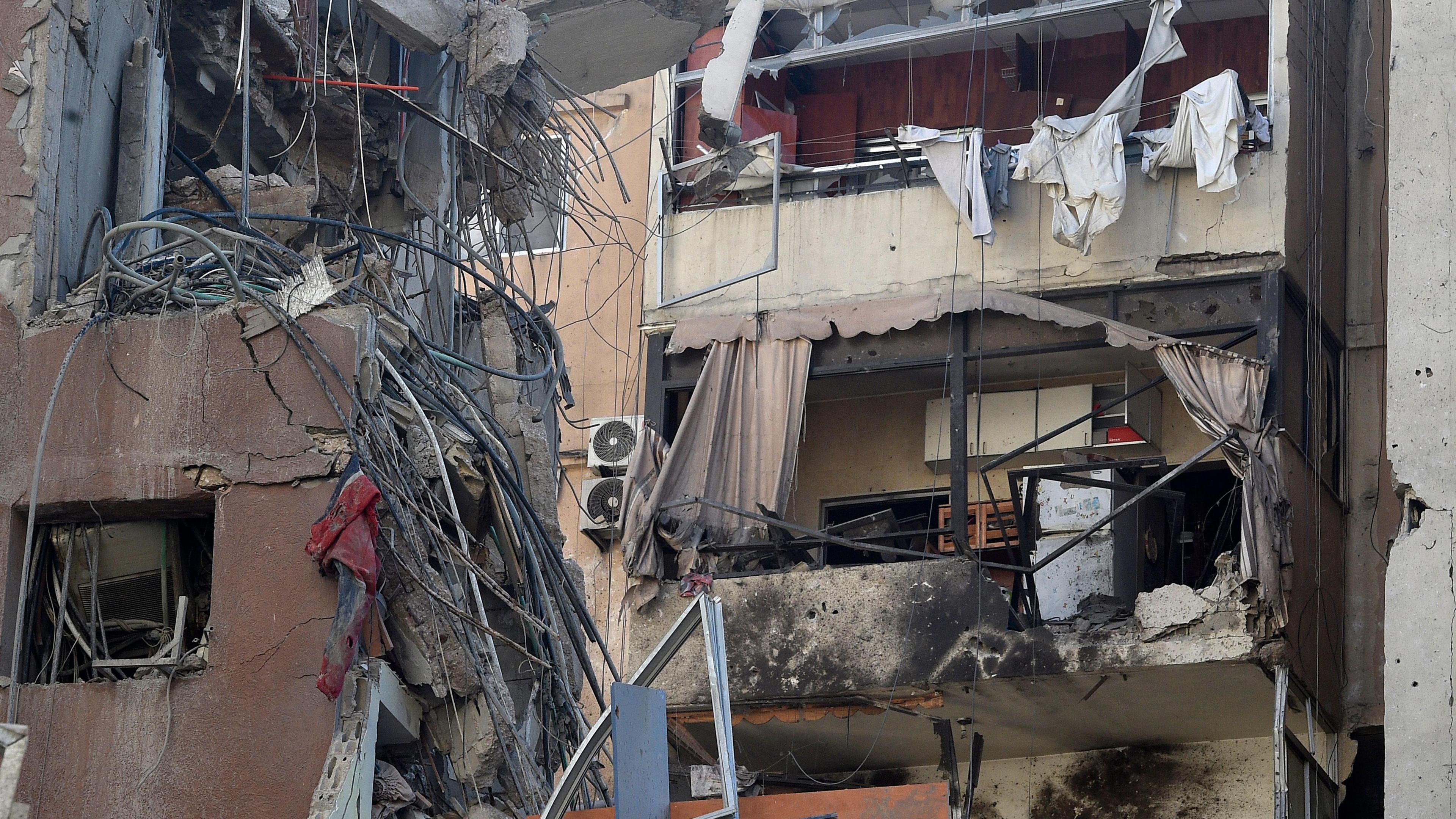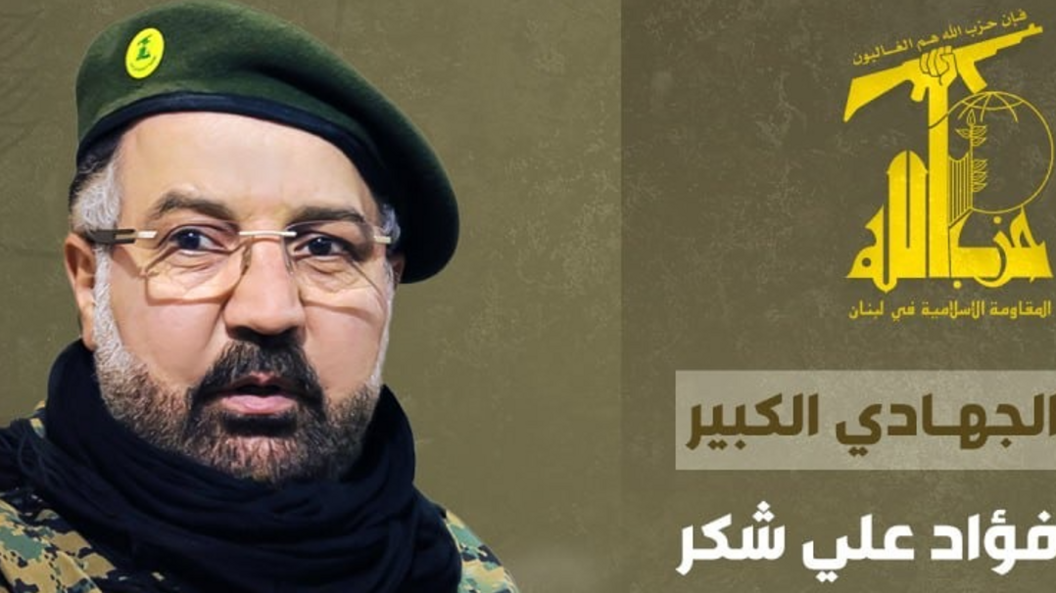Iran vows revenge after Hamas leader assassinated in Tehran

- Published
Iran has threatened “harsh punishment” for Israel, which it says was responsible for assassinating Hamas’s leader on Wednesday.
Israel has not commented directly on the strike which killed Ismail Haniyeh in Tehran early on Wednesday.
However, Israel's Prime Minister Benjamin Netanyahu said his country had delivered “crushing blows” to its enemies in recent days, including the killing of a senior Hezbollah commander in Lebanon hours before the Tehran strike.
He warned Israelis that “challenging days lie ahead”, as fears of a wider conflict in the Middle East grow.
"Since the strike in Beirut, we have heard threats from all sides," he told a televised address.
"We are prepared for any scenario and we will stand united and determined."
UN Secretary-General Antonio Guterres warned against a "dangerous escalation" of hostilities in the region.
Bowen: Israel's killing of Haniyeh deals hammer blow to ceasefire prospects
- Published31 July 2024
Hamas 'in shock' over Haniyeh death
- Published31 July 2024
Hamas's armed wing said the death of Haniyeh, who was widely viewed as the group's overall leader, would "take the battle to new dimensions" and have major repercussions.
The group attacked Israel on 7 October, killing around 1,200 people. Since the attack, Israel has vowed to destroy Hamas.
Haniyeh, who played an important role in negotiations over a ceasefire in Gaza, was killed hours after attending the inauguration of Iran's new president, Masoud Pezeshkian, in Tehran.
A senior Hamas official told the BBC the killing took place in the same building where Haniyeh had stayed during previous visits to Iran.
Three Hamas leaders and a number of guards were with him in the same building, they said.
Khalil Al-Hayya, a senior Hamas official, told a news conference that a missile hit Haniyeh "directly", citing witnesses who were with him.
The group's leadership has been left in "a state of shock", top Hamas officials have told the BBC.
Hours before Haniyeh was targeted, Israel said it had killed senior Hezbollah leader Fuad Shukr in Beirut.
Israel believes he was responsible for a rocket attack that killed 12 people in the Israeli-occupied Golan Heights on Saturday. Hezbollah has denied any involvement.
The Iran-backed group confirmed Shukr's body was found among the rubble of the residential building which was struck. Four other people, including two children, were killed.

Tuesday's strike on Beirut's Haret Hreik neighbourhood destroyed a building
A response from Hezbollah is almost certain. In the past, the heavily-armed, Iranian-supported group has responded to the killings of senior members by firing barrages of rockets into Israel.
The US has updated its travel guidance for citizens, advising them not to travel to Lebanon due to "rising tensions", and the UK foreign secretary has urged nationals to leave the country.
Several airlines have cancelled flights to Beirut, while United, Delta and British Airways are expected to announce they are suspending flights to Tel Aviv.
Related topics
- Published31 July 2024
